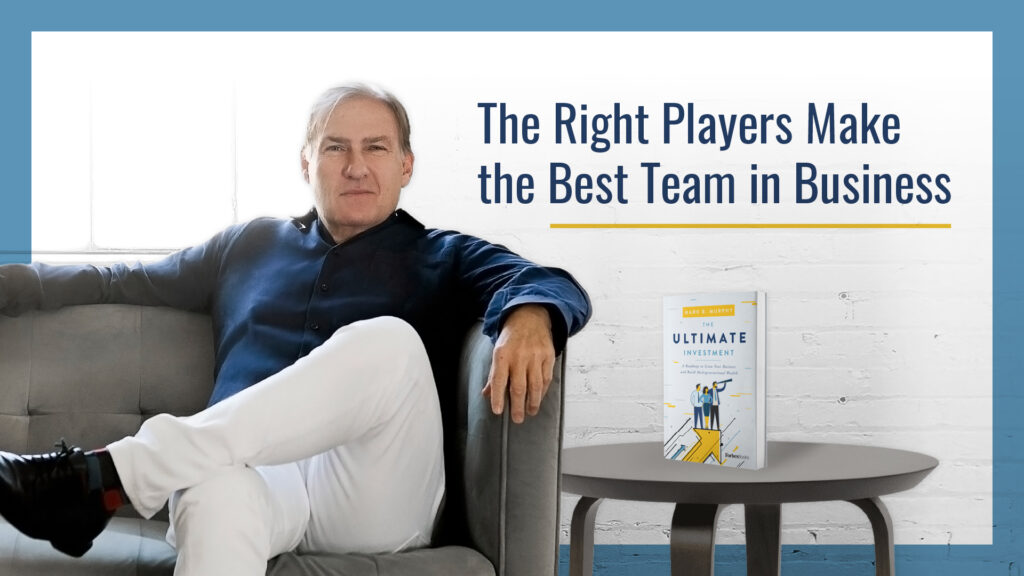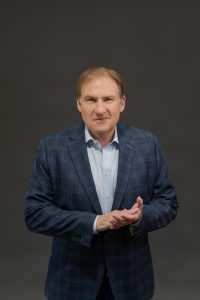Entrepreneurs who know what it means to be investors in their business understand the power of economies and the efficiencies of scale when it comes to building wealth. They understand the power of expansion, replication, and recurring revenue; they know that it’s about putting their efforts into the best opportunities and that keeping the money earned is more important than focusing only on revenue and earnings. It’s not just about net profitability; it’s also about net profitability after taxes.
Often, business operators drive as much revenue as they can through the same fixed overhead, figuring one dollar of revenue minus expenses equals profit. But with economies and efficiencies of scale, adding a second dollar of revenue and just a few additional variable expenses equals up to quadruple or quintuple the profit. For example, $1 million of recurring revenue is like having $20 million in the bank, earning 5 percent.
This is one of the best secrets to becoming a successful business owner turned investor. Let’s look at a dentist office, for example. Many dentist practices revolve around the doctor’s fine motor skills; the business only earns money if the doctor is there with his or her fingers in the patient’s mouth. But instead of being “wet finger,” as I’ve shared with so many clients, using the same strategies, techniques, and tools to replicate their office, the business would not be subject to the performance ability of a single doctor. Instead, with two offices generating income, along with a uniform set of core values, focus, principles, and vision, there is a business that is worth much more than the sum of just one doctor.
Expansion and replication does not just apply to dentistry. Think about one of the biggest examples: McDonald’s. Go into any McDonald’s in the US and you can get an order of French fries that looks and tastes the same as any order in any McDonald’s nationwide. The employees and location are different, but the stores and food are generally uniform. It’s a franchise that has created a replicable process that delivers consistency across the board.
Nearly every business is replicable, but it takes getting beyond a crucial ingredient: the founder’s curse. Too many entrepreneurs want everything to be perfect. The office must be spotless, the books immaculate, the staff the best, the brand spot on—so the entrepreneur tries to do it all themselves. The cleaning, the accounting, the hiring and training, even the marketing. But there comes a point where you must strive to have a business where you get paid for what you know, not what you do. As the founder, you must take a step back, trust in teamwork, trust the abilities of others, and learn to delegate.
Some of those “others,” I always believe, should include a good accountant, a good lawyer, and a good financial advisor. However, when looking for these professionals and others to fill roles for your team, be sure they adhere to four principles that are at the core of multigenerational wealth building:
Principle #1. Whoever asks the most powerful questions always wins.
You’ve likely heard the saying “the good ones tell and the great ones ask.” This is true in business too, particularly for someone in the profession of consulting or advising people. But people often make the mistake of telling when they should be asking. That’s a trap that salespeople, especially, seem to fall into. When you tell someone something, they can nod or disagree. But asking questions leads to collaboration and a solution-focused effort to the benefit of everyone, rather than a cookie-cutter or assumed approach that may end up benefitting no one.
When it comes to accountants, lawyers, and financial advisors, the consultation should be more of a discovery process via questioning (instead of telling). Light bulbs should be going off for the advisor as they start to gain more clarity about the client’s needs; that comes from them sharing by answering questions. Those “aha” moments can lead the advisor to offer the best advice or solution.
Accountants, lawyers, and financial advisors should also stay in their own lane. You should not be receiving advice that is outside someone’s area of expertise. Ensuring all of your trusted consultants are in their is the best way to ensure have a power team around you.
Principle #2. Go for the win-win outcome.
Never get into a transaction where, for one party to win, the other must lose. Professionals often believe that business dealings should be a zero-sum game where only one side of a transaction wins. Instead, by reframing that mindset to win-win, there are more opportunities to figure out solutions where each side is not cannibalized, where abundance—rather than scarcity—is created. These are dealings where everyone walks away better, and everybody wins.
Principle #3. Get out of the mindset of “I need that client— that’s the only client in the world.”
Instead of believing there is a finite number of customers and deals in the world so it’s crucial to beat down a competitor to get every customer every time, think about what is best for both parties in a given situation—and then, what is the first step to achieving that. Sometimes that may mean letting a client go because the relationship just would not be the best fit for either of you. You don’t need every client, there’s another one down the road, another one through the next doorway. And giving up a client here and there, especially when it is best for both of you, is a win for everyone, in my view. That includes the competitor who ends up taking them on.
Principle #4. Show up and be consistent.
Kobe Bryant once said he didn’t understand lazy people, and that, “Great things come from hard work and perseverance.” As someone who has represented many athletes over the years, I’ve noticed an important element in how they train—or, rather, don’t train. They don’t train to perform the super fancy moves that they might make fans go wild but are only used once a season. No, they focus on the fundamentals, the kinds of moves they use regularly to score a win. That’s how they get great.
It’s one thing to show up; it’s another thing to be consistently good. That’s the difference between good companies and great companies. Great companies are consistent; they show up no matter what. I admit, there are days when I’d rather be somewhere else than in the office, but when a client shows up, I have to make sure that the time we spend together is pure magic. When clients walk through my door, every one of them knows exactly what to expect every single time. That level of consistency builds trust and confidence, and ultimately is what has helped build a successful firm because it has earned client loyalty.
And what I consistently share is how to focus on the fundamental tools, techniques, training, and skill sets you need to get to the next level, whether that’s going from self-employed to business owner or from employee to a step up in a new role. Either can lead you to phenomenal results when it comes to building wealth.









